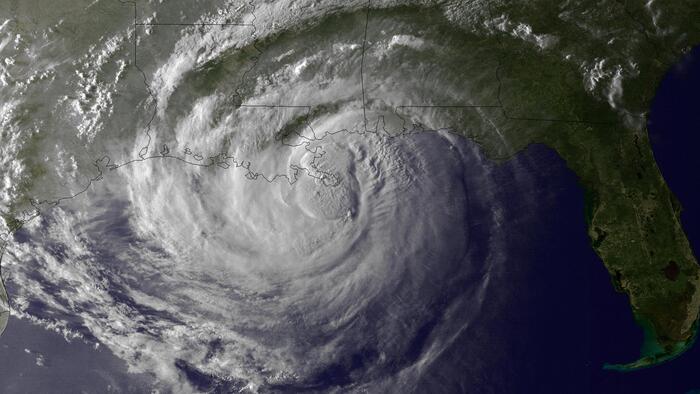Julian E. Barnes
08/19/2021 7:34 PM
Clarín.com
The New York Times International Weekly
Updated 08/19/2021 7:34 PM
WASHINGTON - Intelligence reports submitted to President
Joe Biden
in recent days before the Taliban took control of Afghanistan last week did not predict the imminence of the Afghan government's collapse, even after his earlier warnings were increasingly grim. senior intelligence and defense officials said Wednesday.
Intelligence agencies had stepped up their
warnings
about deteriorating conditions in Afghanistan over the summer.
Gunmen with Taliban members, center, in Kabul, Afghanistan.
Photo Jim Huylebroek / The New York Times.
Their reports became more specific in July, noting how the Taliban had taken control of the roads leading to Kabul and how the group had learned the lessons from its takeover of the country in the 1990s.
But senior administration officials acknowledged that, as the pace of the White House meetings on Afghanistan became more hectic in August and in the days leading up to the Taliban takeover this weekend,
intelligence agencies did not they said collapse was imminent.
"As the president has indicated, this has developed more rapidly than we had anticipated, even in the intelligence community," Avril D. Haines, the director of national intelligence, said in a statement to
The New York Times.
Speaking at the Pentagon, General
Mark A. Milley
, Chairman of the Joint Chiefs of Staff, also said that intelligence predictions of when the Afghan security forces would stop fighting and the collapse of the government varied. widely.
Intelligence reports did not predict the impending collapse of the Afghan government.
Photo Jim Huylebroek / The New York Times.
"There are no reports that I know of that predicted that a security force of
300,000 people
would evaporate in 11 days," Milley said.
The accolades came at a time when the Biden administration is facing its most serious foreign policy crisis to date and is facing strong criticism of the way the White House handled the withdrawal of the military from Afghanistan and the last days of the government in Kabul.
Amid the allegations, questions about the clarity and timing of the intelligence services' warnings have become more urgent.
White House and Defense officials have said they
did not receive
precise predictions
about when the government would fall.
However, intelligence agencies have
warned for years
about the strength of the Taliban and the likelihood that the Afghan government and military will not be able to sustain themselves after the departure of US and international military forces, offering much more pessimistic assessments than other members of the government.
Making accurate predictions about when a government might fall is an impossible standard to meet, according to former intelligence officials, a task that is better for
gamblers
than government analysts.
Still, clear warnings emerged in the weeks leading up to the collapse.
In July, reports from the
CIA
and other agencies were increasingly urgent.
Intelligence analysts noted that the Afghan army and government
were unprepared
to counter the Taliban's push into Kabul, raising questions about whether they would make any serious efforts to defend the capital.
Congress also received a historical analysis of the Taliban's previous campaigns to take over the country, a report that noted that the group had learned the lessons of the 1990s.
The intelligence report accurately predicted that the Taliban would likely secure the provincial capitals, the border and the north of the country before advancing on Kabul.
When
asked by ABC News'
George Stephanopoulos
on Wednesday if the chaos in Afghanistan was a failure of "intelligence, planning, execution or trial," Biden did not directly address the issue.
Instead, he criticized President
Ashraf Ghani's
decision
to flee Afghanistan and the collapse of the army.
"When the government of Afghanistan, the leader of that government, got on a plane and took off and went to another country, when we saw the significant collapse of the Afghan troops that we had trained, up to
300,000 of them,
simply leaving their equipment and taking off - that was, you know, I'm not, that's what happened, "Biden said.
"That's just what happened."
Over the past year, intelligence agencies lowered their predictions about how quickly the Afghan government would fall, from
two years to 18 months,
to six months to one month, according to current and former officials.
But, according to officials, the warning that his disappearance was days away never came.
The intelligence he reviewed, Milley said, outlined different scenarios, including a Taliban takeover following the collapse of Afghan security forces, a civil war and a negotiated settlement.
"The time frame of the 'rapid collapse' scenario varied widely and ranged from weeks, months and even years after our departure," he said.
Still, senior officials pointed out that the CIA and other intelligence agencies had identified throughout the season of fighting in Afghanistan the risk of a rapid collapse and issued increasingly pessimistic reports on the survival of the Afghan government, especially when Ghani it resisted changing military strategies or creating a more inclusive government.
Military and intelligence agencies have long disagreed about the prospects for success in Afghanistan.
The CIA has consistently offered grim predictions and raised questions
c.2021 The New York Times Company
Look also
The Taliban seek to detain those who worked with US and British forces
Timeline of a two-decade war















